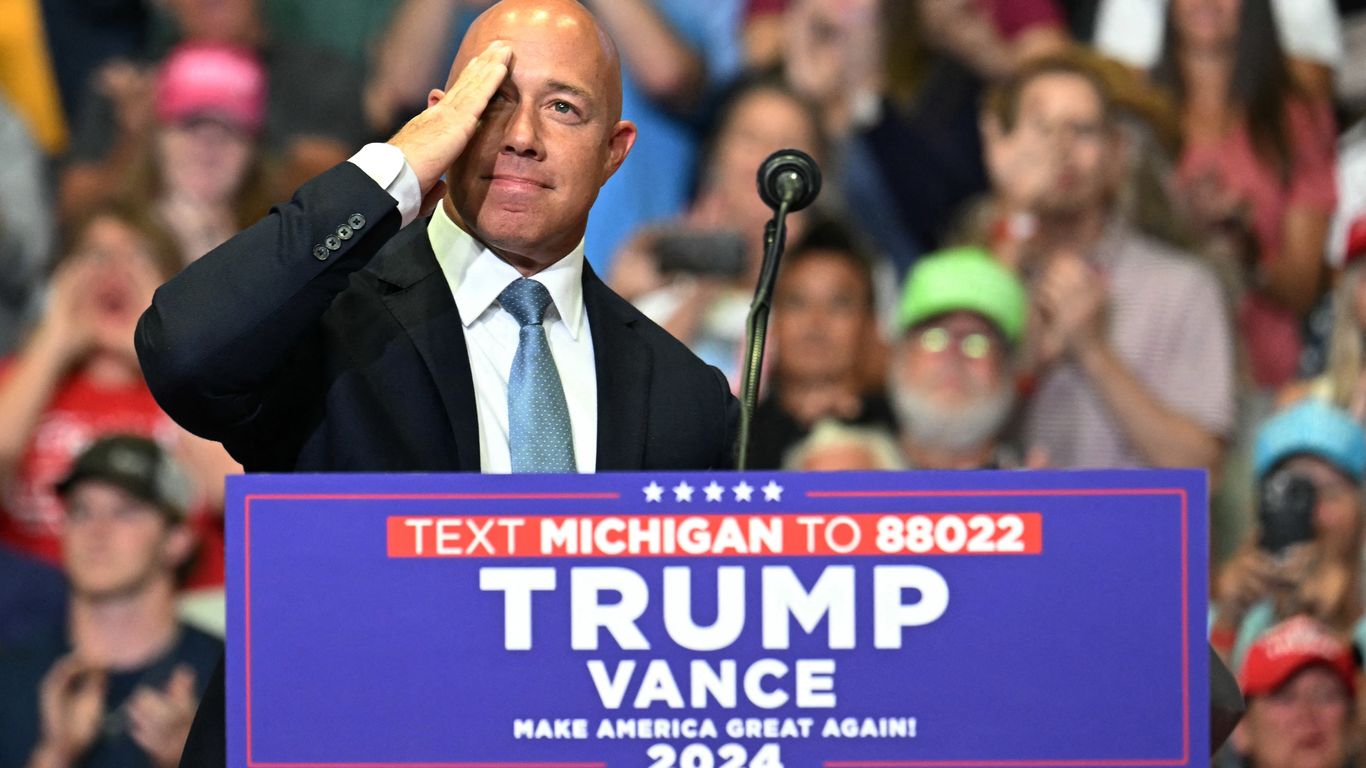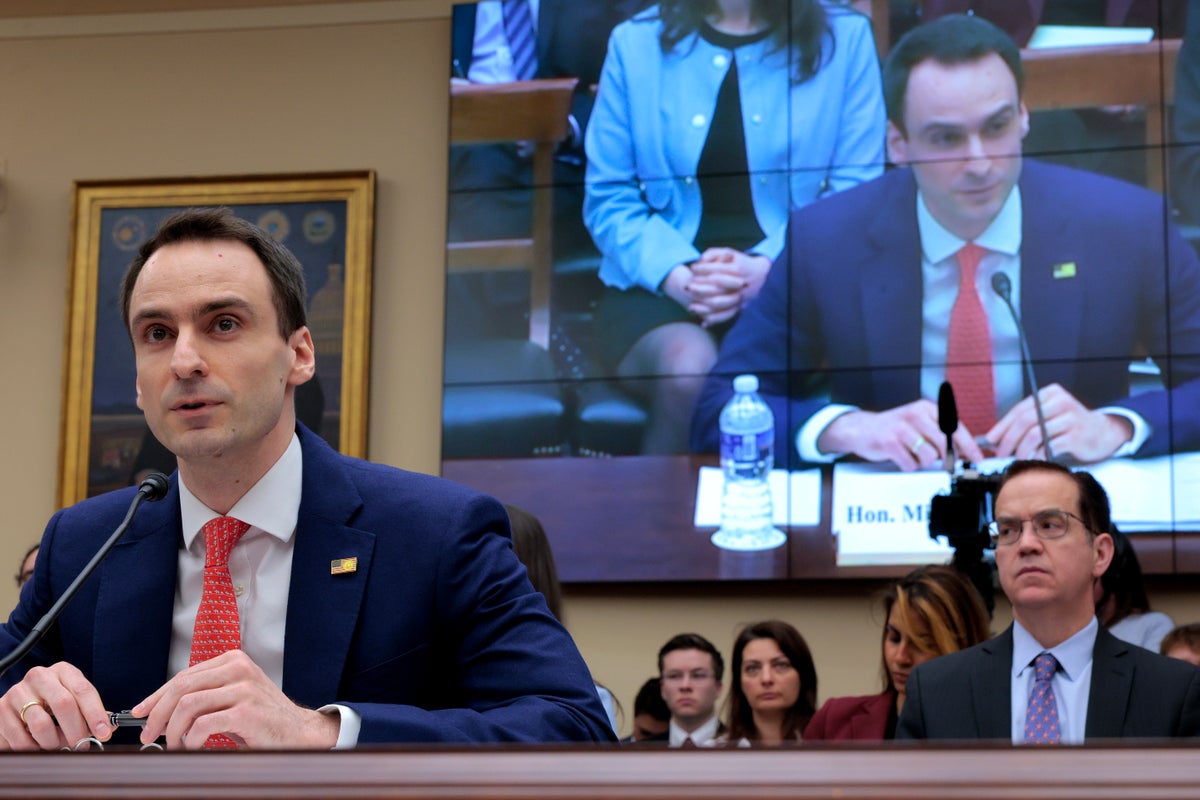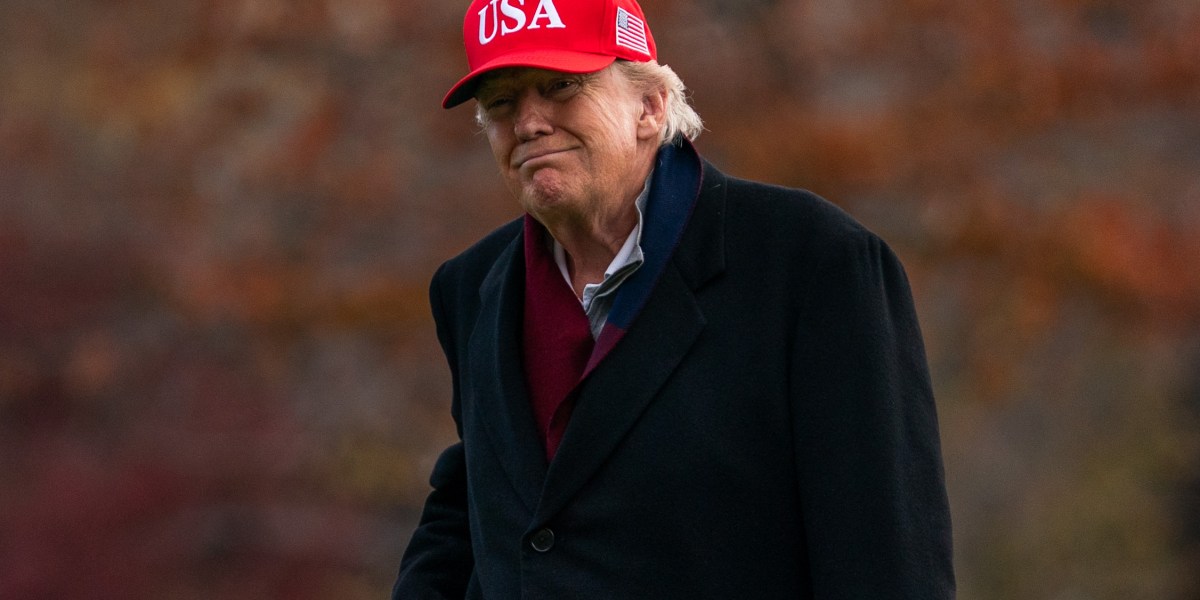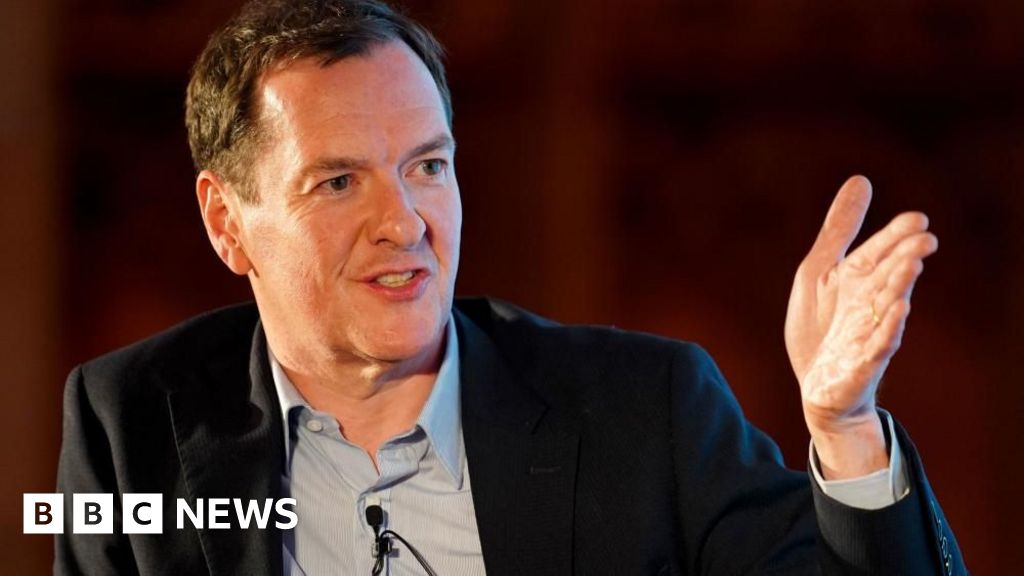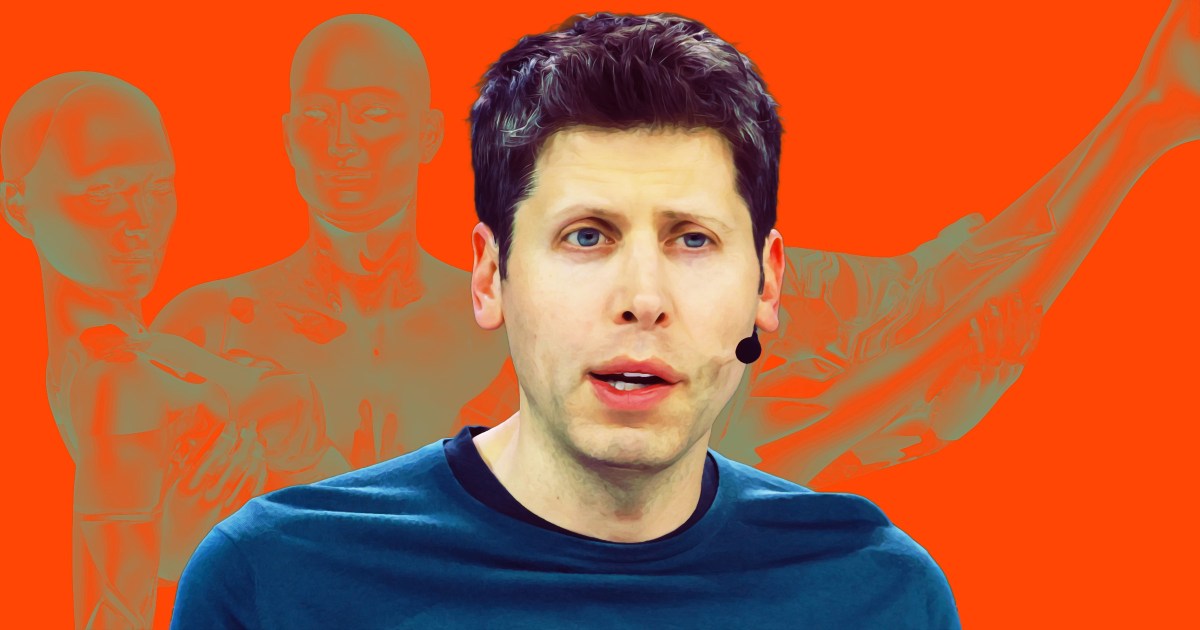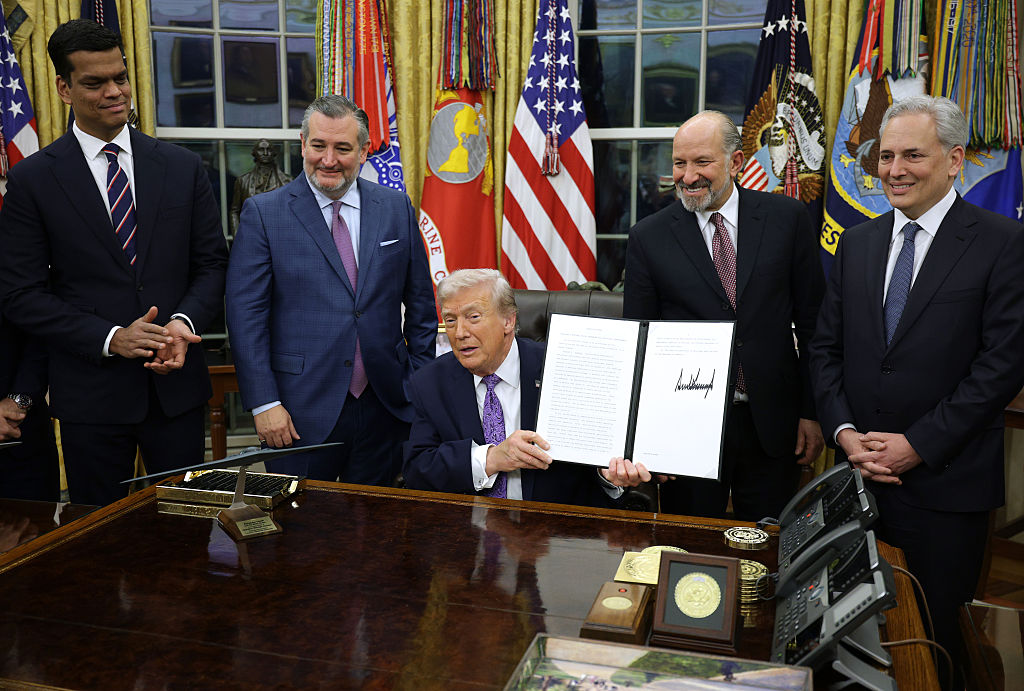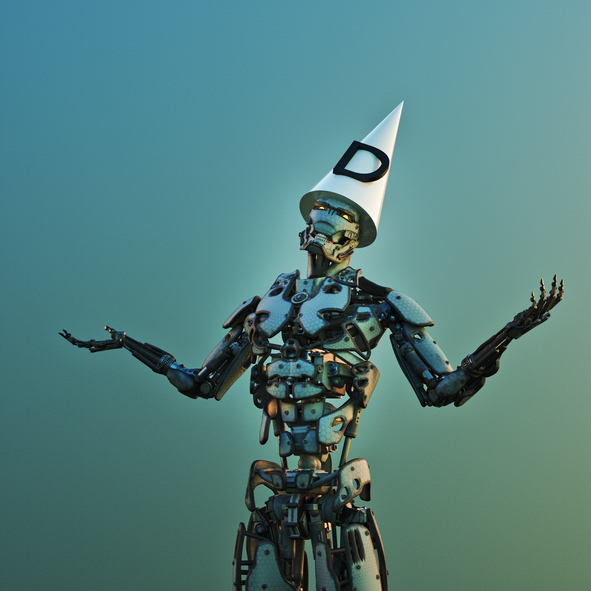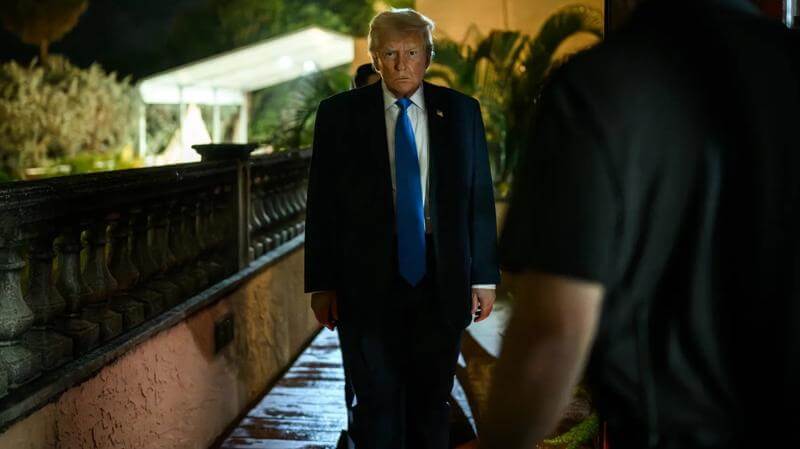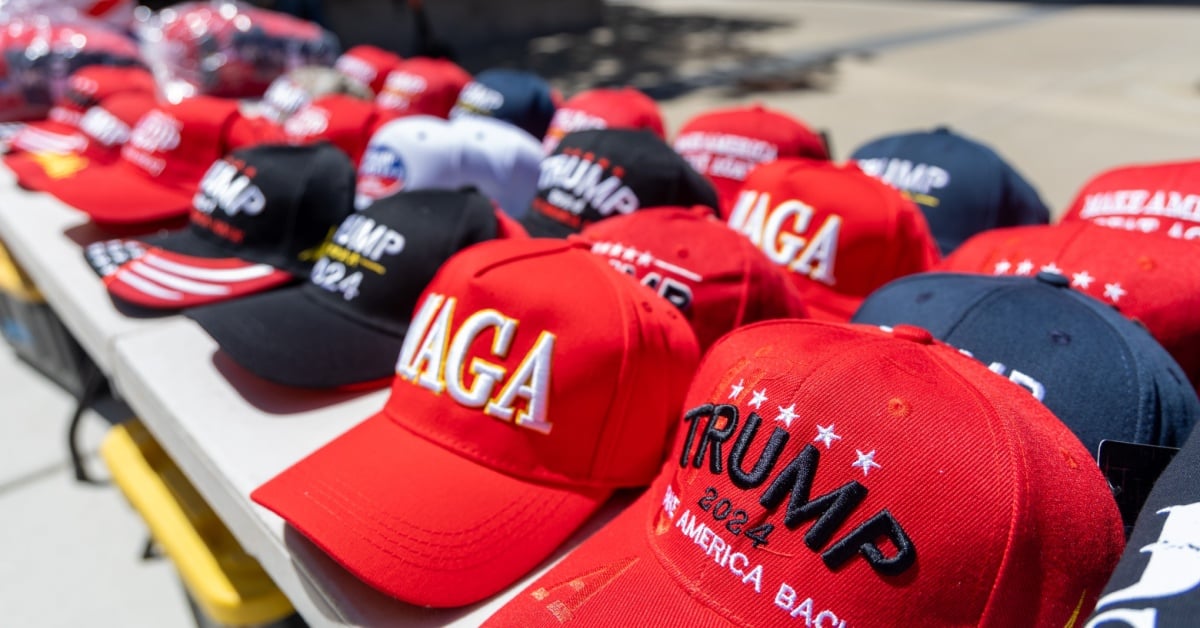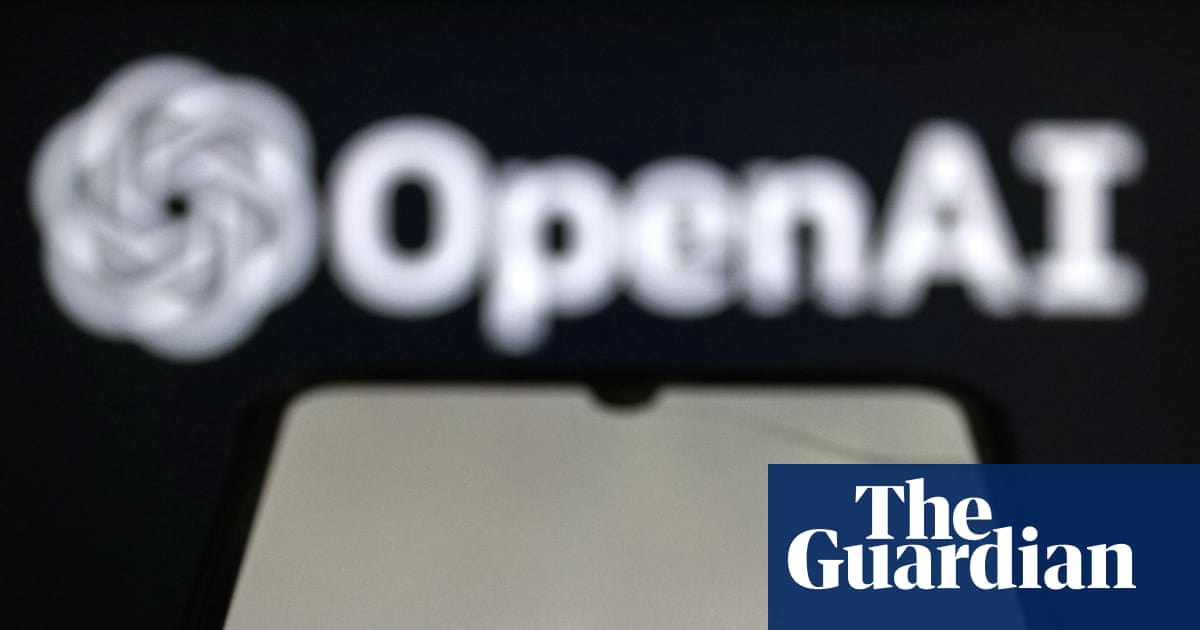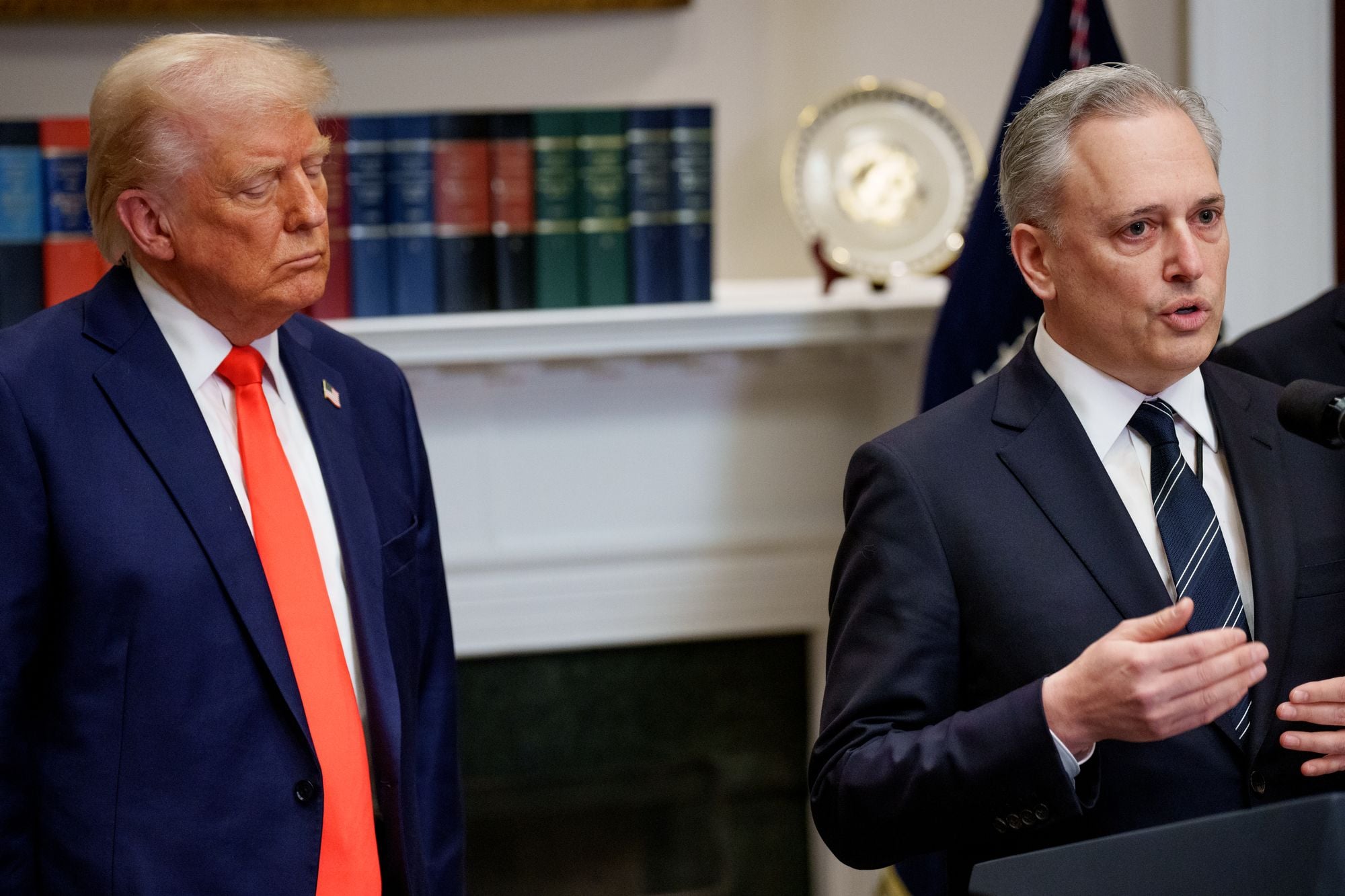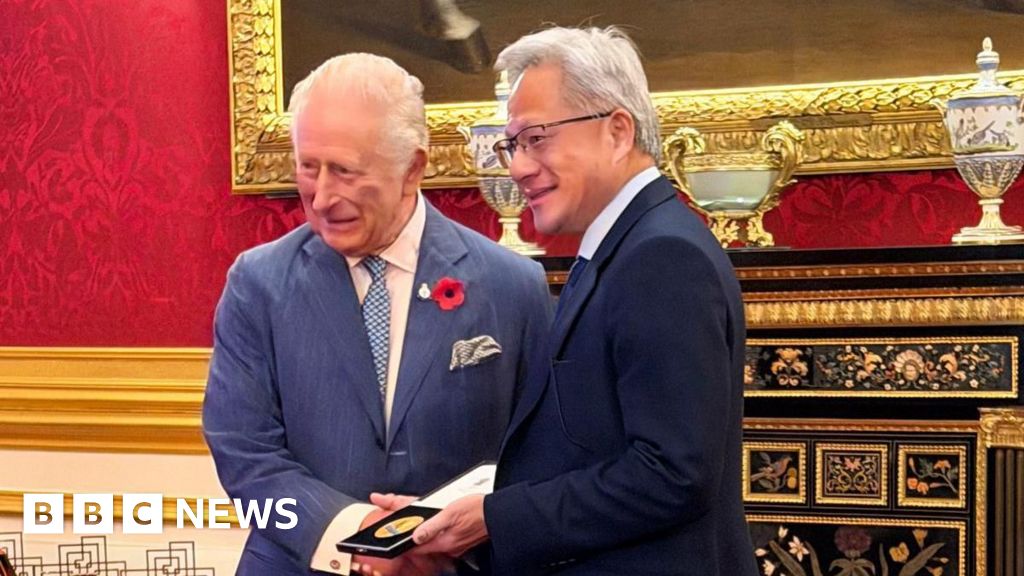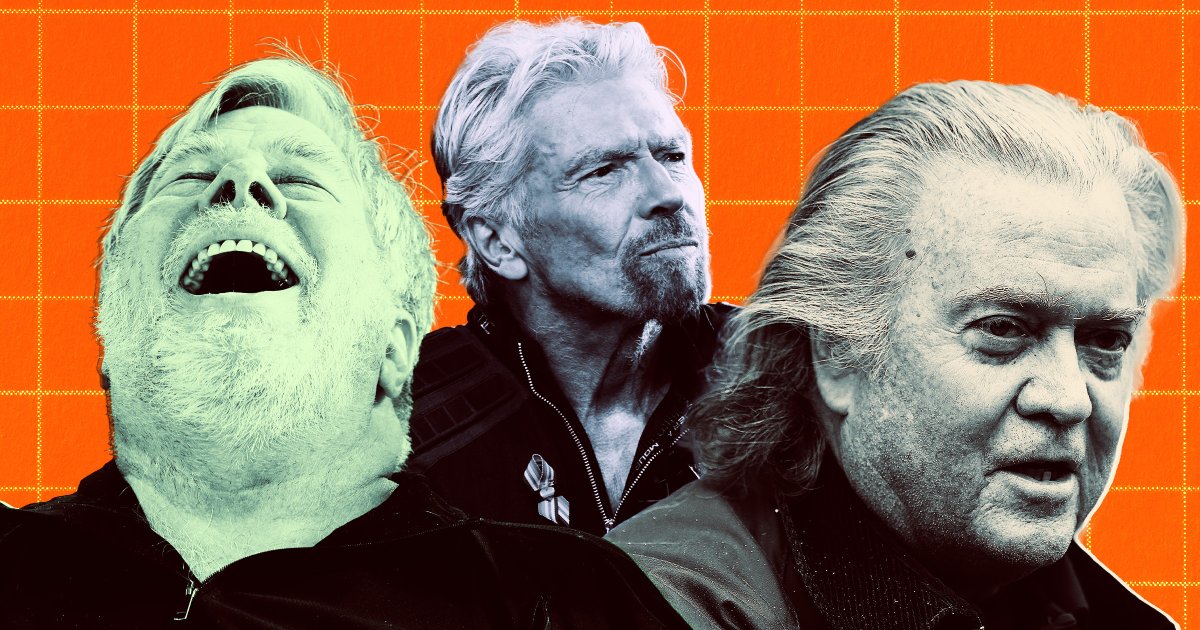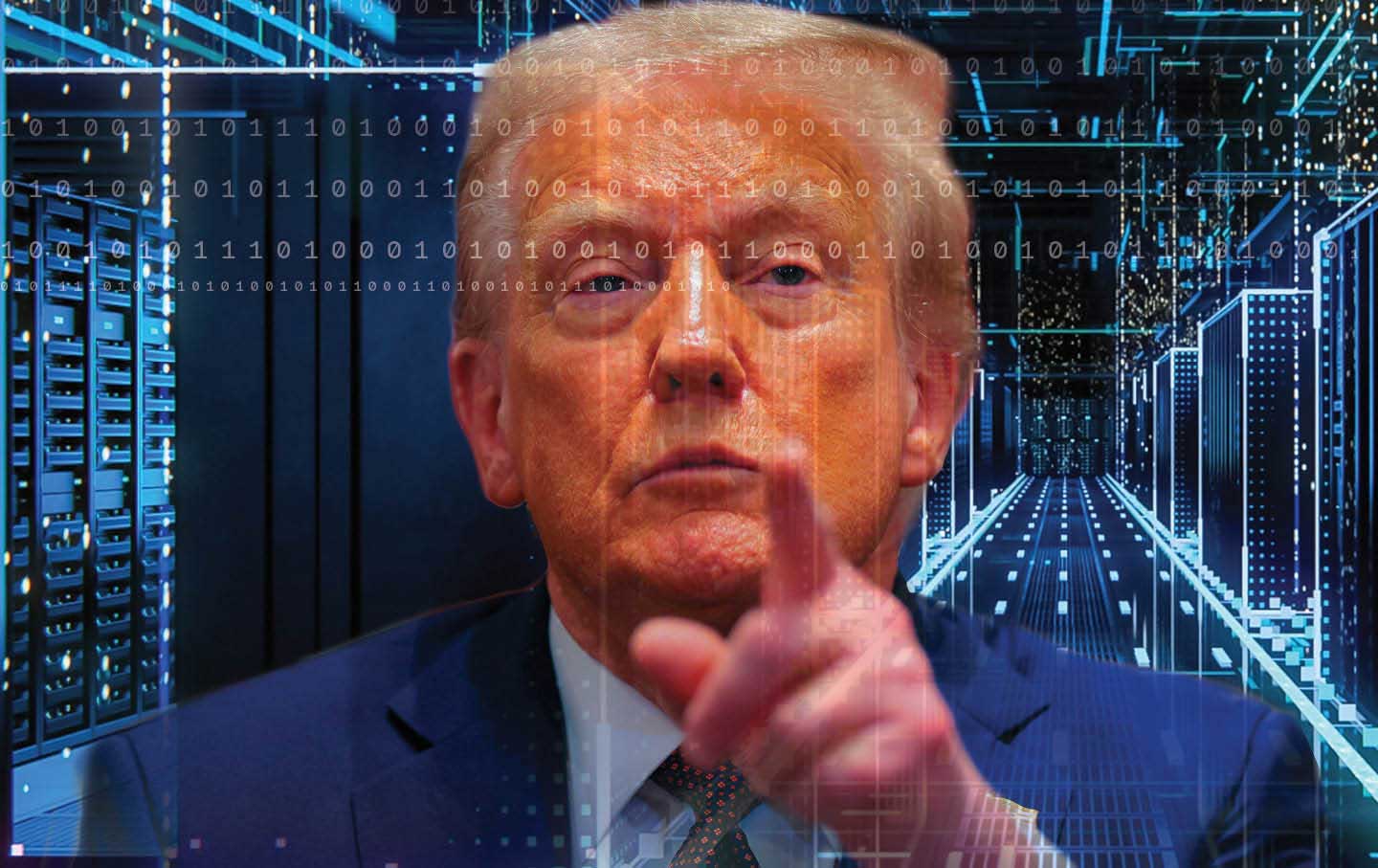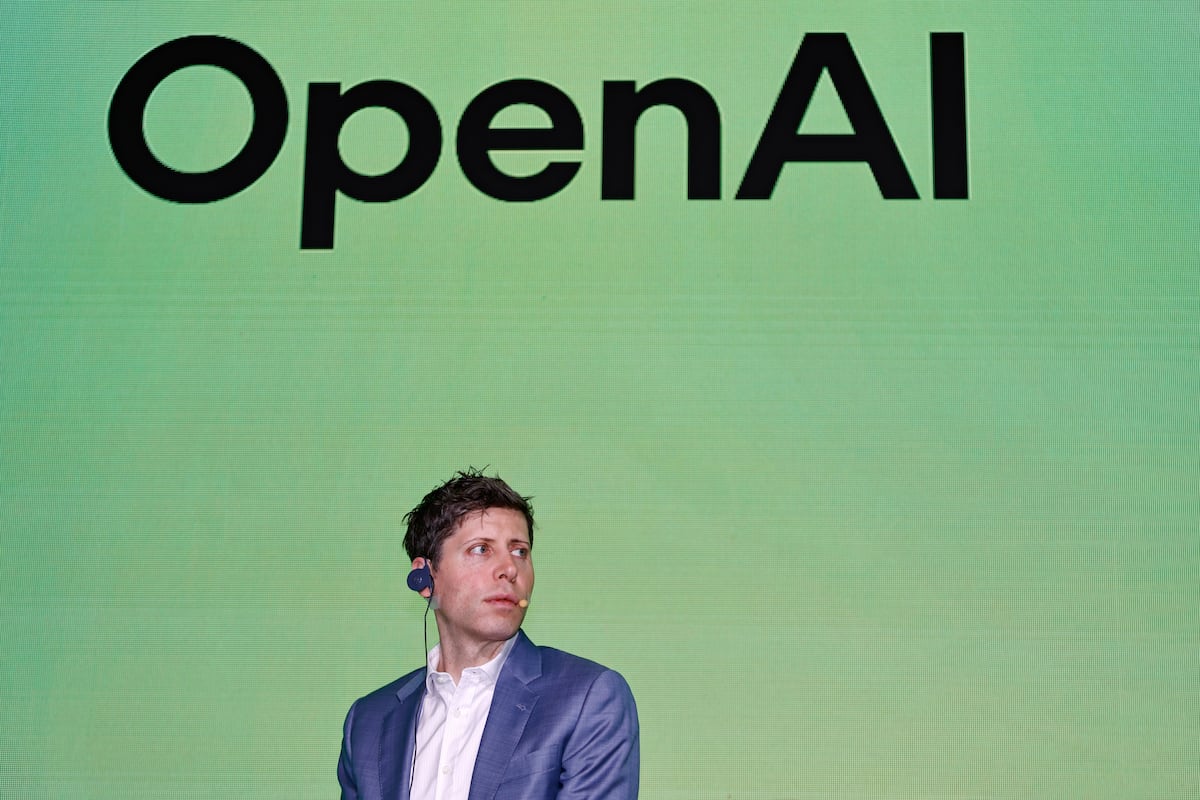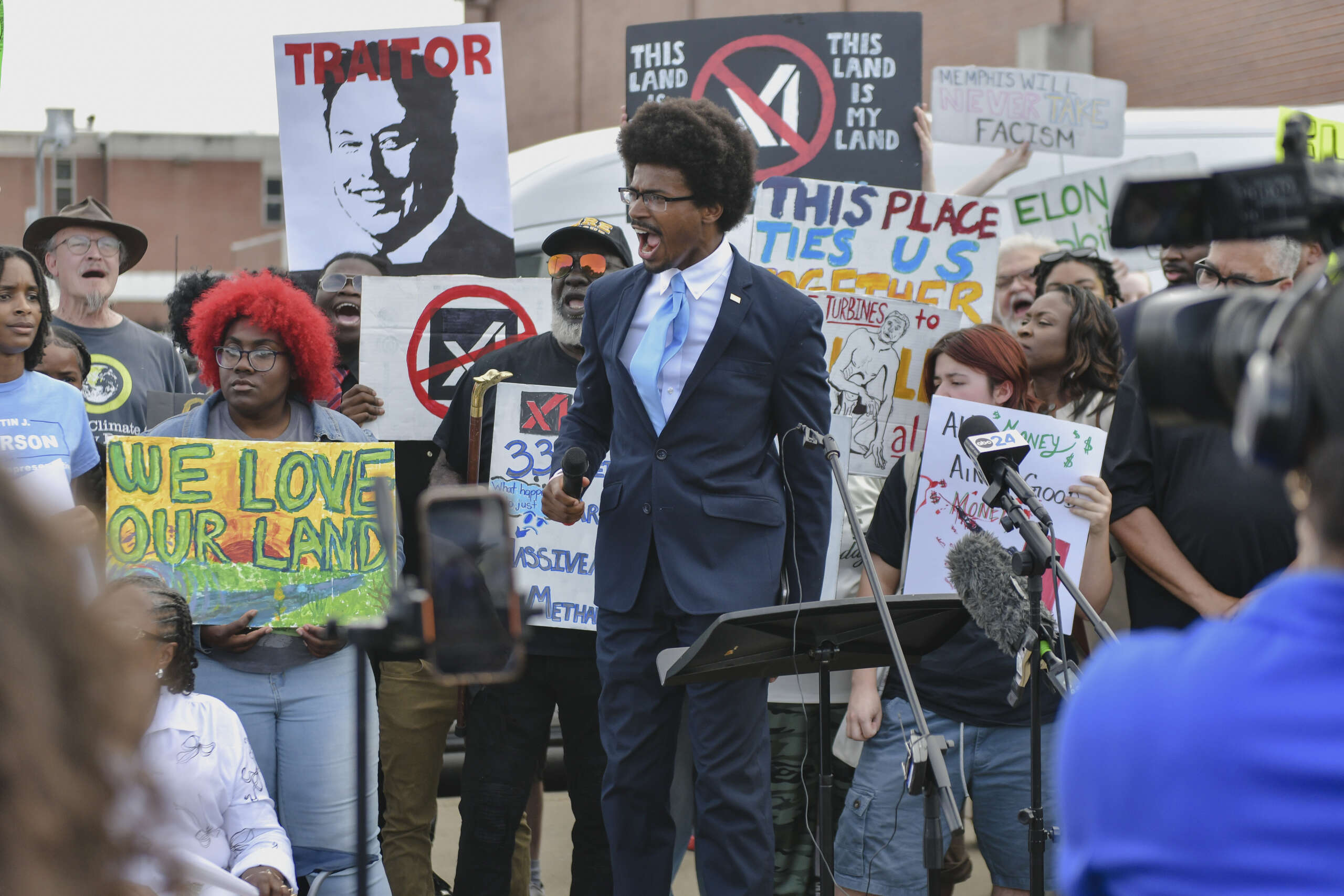#ai-policy
#ai-policy
[ follow ]
#openai #executive-order #federal-preemption #david-sacks #state-regulation #ai-safety #regulation #deregulation
fromwww.dw.com
1 week agoWhere is the US-China AI 'race' heading in 2026?
One year ago this week, Silicon Valley and Wall Street were shocked by the release of China's DeepSeek mobile app, which rivaled US-based large language models like ChatGPT by showing comparable performance on key benchmarks at a fraction of the cost while using less-advanced chips. DeepSeek opened a new chapter in the US-China rivalry, with the world recognizing the competitiveness of Chinese AI models, and Beijing pouring more resources into developing its own AI ecosystem.
Artificial intelligence
Law
fromIPWatchdog.com | Patents & Intellectual Property Law
8 months agoOther Barks & Bites for Friday, May 9: USPTO Responds to GAO Report; Stewart Welcomes National Inventors Hall of Fame Inductees; CAFC Defines 'Ground' for IPR Estoppel Statute
Developments span patent law precedents, trade and supply‑chain agreements for pharmaceuticals, AI and copyright scrutiny, technology export changes, and diagnostic sublicensing to expand African manufacturing.
UK politics
fromComputerWeekly.com
2 weeks agoMayor of London Sadiq Khan calls for urgent action to boost the capital's AI workforce | Computer Weekly
London will establish an AI and future-of-work taskforce, provide free AI training, and pursue urgent measures to prevent mass unemployment and rising inequality.
fromWIRED
2 weeks agoHow AI Companies Got Caught Up in US Military Efforts
At the start of 2024, Anthropic, Google, Meta, and OpenAI were united against military use of their AI tools. But over the next 12 months, something changed. In January, OpenAI quietly rescinded its ban on using AI for "military and warfare" purposes, and soon after it was reported to be working on "a number of projects" with the Pentagon.
Artificial intelligence
fromNextgov.com
1 month agoWhite House instructs agencies to stop using 'biased' AI
Created as a part of President Donald Trump's July executive orders that sought to eradicate "woke" AI, the new OMB memo aims to prevent large language models within the federal government that are deemed not "truth-seeking," specifying that within federal agencies, "LLMs shall prioritize historical accuracy, scientific inquiry, and objectivity, and shall acknowledge uncertainty where reliable information is incomplete or contradictory."
US politics
fromEngadget
1 month agoDoom studio id Software forms 'wall-to-wall' union, with a majority of employees voting in favor
The wall-to-wall organizing effort at id Software was much needed; it's incredibly important that developers across the industry unite to push back on all the unilateral workplace changes that are being handed down from industry executives,
US news
US politics
fromNew Hampshire Public Radio
1 month agoAyotte's COGE committee issues government efficiency recommendations
A 77-page commission report recommends dozens of government-efficiency measures, including rescinding outdated rules, building an AI innovation framework, adopting statewide CRM, and consolidating services.
fromwww.theguardian.com
1 month agoAlbanese is taking away social media for children but hanging out mistletoe for AI. It's magical thinking | Peter Lewis
I'm blaming Santa. As 2025 reaches its inevitable endgame, I can't help thinking we have all become gullible children enthralled by the promise of tech cornucopia, refusing to see the folds in our logic because deep down we don't want to break the magic. While the federal government prepares to take the toys off the children with its world-first social media ban, it is hanging out the stockings for the self-same tech overlords to fill with new goodies via its light-touch National AI Plan.
World news
fromNextgov.com
1 month agoNew House commission to scrutinize AI's impact on the economy
The House Democratic Commission on AI and the Innovation Economy - which will convene throughout 2026 - includes Reps. Ted Lieu, D-Calif., Josh Gottheimer, D-N.J., and Valerie Foushee, D-N.C., as co-chairs. Reps. Zoe Lofgren, D-Calif., and Frank Pallone, D-N.J., will serve as ex officio co-chairs, due to their positions as ranking members of the Science, Space and Technology Committee and the Energy and Commerce Committee, respectively.
US politics
fromBig Think
1 month agoAI is a power amplifier. The future depends on who turns the dials.
AI will help us navigate the immense amounts of information and data created every day in the modern world, but it will also make it easier for bad actors to swamp the infosphere with disinformation. AI can enable real-time translations to spread ideas seamlessly across language barriers, but it may also make the marketplace of ideas less pluralistic by concentrating power in a few individuals.
Artificial intelligence
fromAxios
1 month agoBehind the Curtain: Trump bets his presidency and GOP's future on AI
From his inauguration to last month's glitzy White House dinner for the Saudis, Trump basks in the support, gifts and affirmation of the most famous AI leaders and companies in the world. The big picture: Trump has essentially fused Silicon Valley and government in a race to both beat China to all-powerful AI and rescue an economy that's treading water outside of the AI boom. He has rolled back regulations, awarded huge contracts, and downplayed concerns about AI safety or downside risk.
US politics
fromIT Pro
2 months agoAustralia outlines national plan to help support an AI-enabled economy
Moving from theory to reality here will be heavily reliant on people, it said. Indeed, a key focus will be ensuring Australia has a workforce that is equipped with the necessary knowledge and skills to build the required supporting infrastructure to fuel AI solution creation and unlock myriad benefits. This will also help ensure citizens have access to newly created, high-value jobs and that the fruits of technological advancements are first felt locally.
Artificial intelligence
fromArs Technica
2 months agoUK government will buy tech to boost AI sector in $130M growth push
"Our particular strengths as a country lie in areas like life sciences, financial services, the defense sector, and the creative sector. And where we will really lead the world is where we can use the power of AI in those sectors," Kendall told the Financial Times. The plans came as part of a wider AI package designed to upgrade Britain's tech infrastructure and convince entrepreneurs and investors that Labour is backing the sector ahead of next week's Budget, which is expected to raise taxes on the wealthy.
UK politics
fromNextgov.com
2 months agoWhite House official, lawmaker call for amplifying US tech policy abroad
It's very concerning what PRC is doing in the world ... and if we let that become dominant, it is a means of control. And that's why I think that our worldview is that of freedom and of prosperity and a personal choice. And so if we allow our models to dominate, then our worldview begins to dominate," Budd said. "And I think that's what's best for humanity. I think that's what's best for the world.
Artificial intelligence
Artificial intelligence
fromFast Company
2 months agoAI CEOs are promising all-powerful superintelligence. Government insiders have thoughts
AI promises breakthroughs in medicine, science, and human-level intelligence while governments lag adoption and critics warn of unreliability and threats to democratic values.
Artificial intelligence
fromThe Verge
2 months agoSpotify's new audiobook recap feature uses AI to remind you of the story so far
Spotify launched an AI-powered Recaps feature for audiobooks that summarizes previously heard content without rewinding, available on iOS for a limited set of English titles.
Higher education
fromInside Higher Ed | Higher Education News, Events and Jobs
2 months agoFaculty Lead AI Usage Conversations on College Campuses
Most college students understand when to use AI for coursework because faculty instruction and syllabus guidance increasingly define appropriate AI practices.
fromTheregister
2 months agoSenators want companies to report AI layoffs amid job cuts
"This bipartisan legislation will finally give us a clear picture of AI's impact on the workforce - what jobs are being eliminated, which workers are being retrained, and where new opportunities are emerging," Warner said. "Armed with this information, we can make sure AI drives opportunity instead of leaving workers behind."
US politics
fromNextgov.com
3 months agoHouse Republican questions government stake in tech companies
If you start picking winners and losers because you're invested in certain companies and not in others, it's going to basically shoulder out all the most innovative, small companies from becoming competitive, because we as a government will become protectionist of the businesses that we have ownership in
US politics
fromAxios
3 months agoAI experts push to pause superintelligence
AI "doomers" have lost their foothold with U.S. policymakers. But they're still trying to be heard, and are highly involved in global AI policy debates. Driving the news: The call to action, organized by the Future of Life Institute, has more than 800 signatures from a diverse group, including: AI pioneers Yoshua Bengio and Geoffrey Hinton, Apple co-founder Steve Wozniak, Sir Richard Branson, Steve Bannon, Susan Rice, will.i.am and Joseph Gordon-Levitt.
Artificial intelligence
fromBusiness Insider
3 months agoOpenAI is limiting deepfakes on Sora after pressure from Bryan Cranston and Hollywood groups
OpenAI is working with actor Bryan Cranston and other Hollywood groups to limit deepfakes made with its Sora 2 video app, the company said Monday in a joint statement. The "Breaking Bad" actor voiced concerns to SAG-AFTRA after his voice and likeness were replicated in the video generator, following its invite-only launch this fall. "I was deeply concerned not just for myself, but for all performers whose work and identity can be misused in this way," Cranston said in the statement.
Artificial intelligence
fromGameSpot
3 months agoJapanese Government Makes Formal Request For OpenAI To Stop Copyright Infringement
At a Cabinet Office press conference, Minister of State for IP and AI Strategy Minoru Kiuchi emphasized that anime and manga are "irreplaceable treasures" representing Japan's cultural pride (via IGN). The government urged OpenAI to respect Japanese copyrights and avoid misuse of its technology. Digital Minister Masaaki Taira echoed this sentiment, suggesting that if OpenAI doesn't voluntarily comply, Japan could invoke provisions under the AI Promotion Act--legislation that promotes AI development while also addressing risks such as copyright violations.
Intellectual property law
fromBusiness Insider
3 months agoI'm the president of Signal. I love dance music in the mornings, night yoga, and acting like a tourist - here's a day in my life.
In July 2006, I accepted a job offer at Google that brought me into tech after an arts and humanities education. I climbed the ladder at Google to found Google's Open Research Group, working on issues related to measurement, privacy, and AI. In 2016, I cofounded the AI Now Research Institute at NYU, the first university-based research institute to examine broader social and political economic considerations surrounding AI.
Artificial intelligence
fromwww.theguardian.com
3 months agoTony Blair and Nick Clegg hosted dinner giving tech bosses access to UK minister
Tony Blair and Nick Clegg hosted a private dinner earlier this year at which a select group of technology entrepreneurs were given access to a key minister, official documents have revealed. The former prime minister, who is a champion of the tech industry, held the dinner in an upmarket London hotel in his capacity as the head of the Tony Blair Institute (TBI) political consultancy.
UK politics
fromFortune
4 months agoAI models are getting very good at professional tasks, new OpenAI research shows | Fortune
Google CEO Sundar Pichai was right when he said that while AI companies aspire to create AGI (artificial general intelligence), what we have right now is more like AJI-artificial jagged intelligence. What Pichai meant by this is that today's AI is brilliant at some things, including some tasks that even human experts find difficult, while also performing poorly at some tasks that a human would find relatively easy.
Artificial intelligence
fromLos Angeles Times
4 months agoNewsom signs AI transparency bill prioritizing safety
Gov. Gavin Newsom signed a bill Monday that will create new transparency measures for large AI companies, including public disclosure of security protocols and reports of critical safety incidents. Sen. Scott Wiener (D-San Francisco) said Senate Bill 53 will create "commonsense guardrails" to ensure groundbreaking innovations don't sacrifice safety and transparency amid the rapid growth of AI technologies.
Artificial intelligence
Artificial intelligence
fromConsequence
4 months agoSpotify Cracks Down on AI, Removing 75 Million Tracks and Targeting Voice Clones
Spotify removed over 75 million spammy tracks and tightened policies against AI impersonation, spam uploads, and introduced AI-use disclosures to protect artists and listeners.
[ Load more ]


